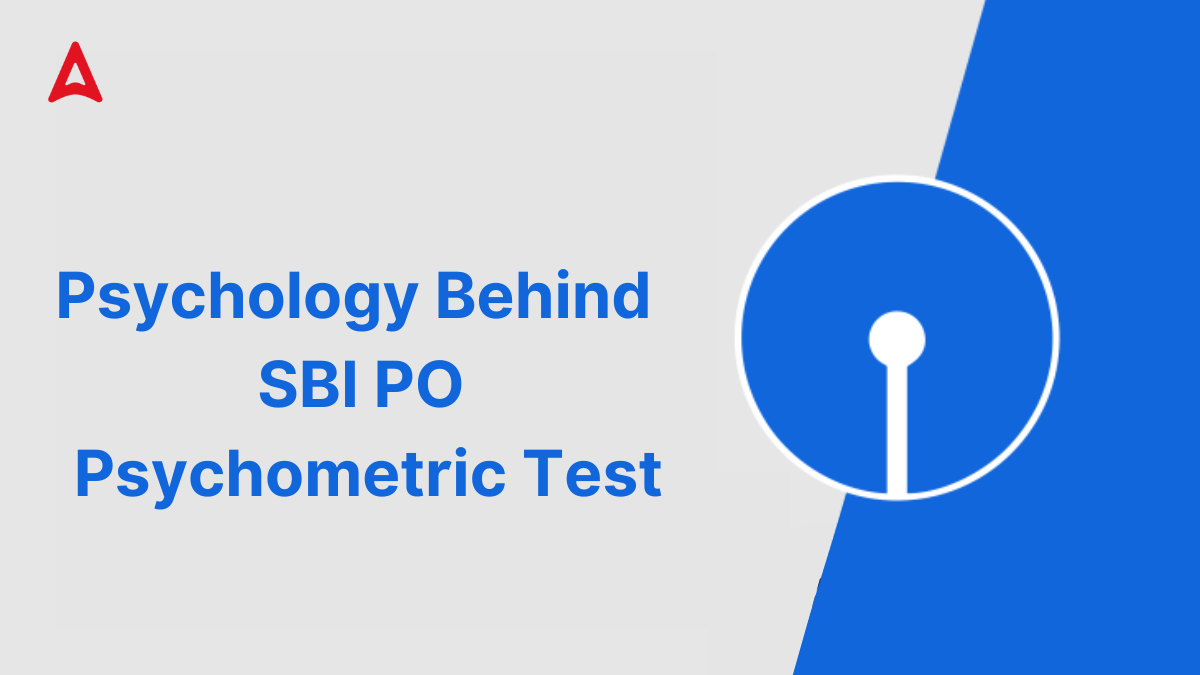The Psychology Behind the SBI PO Psychometric Test lies in understanding how a candidate’s personality, behaviour, and mindset align with the core responsibilities of a banking professional. This test goes beyond academic intelligence to evaluate emotional stability, integrity, leadership qualities, and decision-making patterns. By analyzing responses, SBI aims to identify candidates who demonstrate not just intellectual ability but also the right psychological traits required for handling pressure, interacting with customers, and managing teams effectively.
Psychology Behind SBI PO Psychometric Test
Psychometric tests are created by psychologists and HR experts who study how people behave in different situations. These tests include multiple-choice questions, statements, and scenarios where you have to pick the option that best matches your behaviour or opinion.
Each answer gives clues about your attitude, emotional balance, honesty, decision-making ability, and how you deal with pressure. The test is designed so that you cannot fake answers easily, consistency and honesty are key.
Why You Should Take It Seriously
Many candidates think the psychometric test doesn’t matter much. But in a role like SBI PO, personality is just as important as intelligence. Your score here reflects how well you fit into SBI’s work culture and long-term goals. Being honest and self-aware helps more than trying to guess the “ideal” answer. The bank is looking for real people who can grow and stay with them not someone pretending to be perfect.
SBI Specific Focus
Banks like SBI want more than just intelligent candidates. The psychometric test helps the bank look beyond marks and qualifications. It tells whether a candidate can handle real-life banking challenges like dealing with angry customers or making fast decisions during busy hours.They want officers who are:
- Emotionally stable
- Ethical
- Calm under pressure
- Customer-friendly
- Good decision-makers
Bank-Specific Focus: Stability
Working in a bank like SBI means facing pressure, deadlines, and lots of responsibility. That’s why the psychometric test checks if you are mentally strong and stable. Questions are framed to see how you behave when you’re under stress or facing a problem. If a candidate shows signs of being too impulsive, easily frustrated, or unsure, it may raise a red flag for the bank.
Bank-Specific Focus: Integrity
Integrity means honesty and strong moral values. SBI wants to hire people who can be trusted with money, data, and customer details.
Through this test, the bank checks if you follow rules, avoid shortcuts, and are truthful in tough situations. Questions related to ethical dilemmas help find out whether the candidate chooses the right path or gives in to personal gain.
Bank-Specific Focus: Customer Empathy
A large part of an SBI PO’s job involves dealing with customers. The test tries to understand if you can listen patiently, understand customer emotions, and provide help without being rude or robotic. Scenarios in the test may present a customer complaint or a tricky request. Your answer helps the bank see whether you handle the customer with empathy or irritation.
Role of Emotional Intelligence and Stability
Emotional intelligence (EI) plays a central role in the SBI PO Psychometric Test, as it helps determine how effectively a candidate can manage emotions — both their own and those of others — in a professional setting. In the banking environment, officers often deal with high-pressure situations, customer concerns, and team coordination, where emotional balance becomes essential. Key Points:
- Emotional Awareness: Candidates must recognize and understand their emotions to make thoughtful, rational decisions under stress.
- Empathy: The ability to relate to customers and colleagues helps build trust and maintain positive relationships, crucial in customer-centric roles.
- Self-Control: Staying composed during challenges or disagreements indicates mental stability and maturity — qualities SBI values highly.
- Adaptability: Emotionally intelligent individuals can adjust to changing situations, policies, or team dynamics with ease.
- Decision-Making Under Pressure: Emotional stability ensures logical and unbiased decisions, even when deadlines or responsibilities are demanding.




 CAIIB Exam Date 2026 Out for June & ...
CAIIB Exam Date 2026 Out for June & ...
 NICL Assistant Cut Off 2026, Check Previ...
NICL Assistant Cut Off 2026, Check Previ...
 RBI Issues Draft Guidelines on Forex Dea...
RBI Issues Draft Guidelines on Forex Dea...








